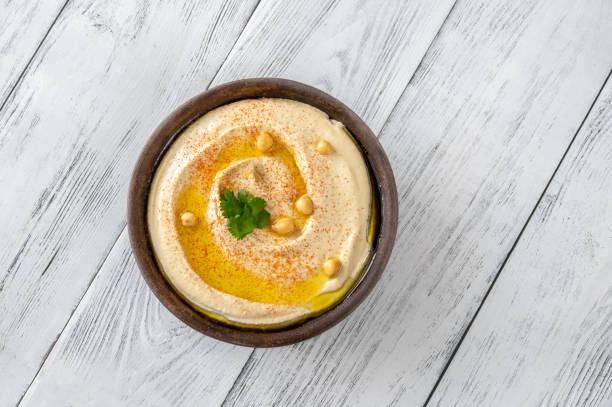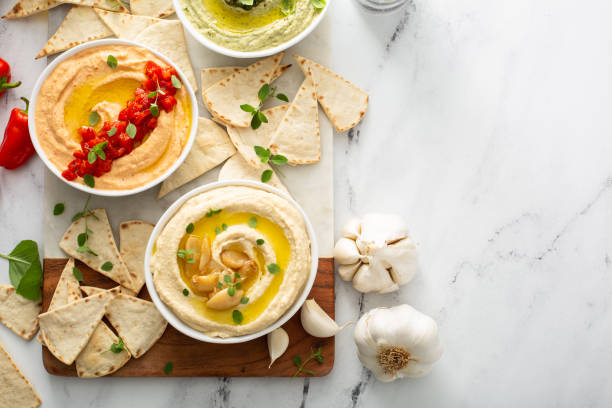Hummus
A common spread or dip in the Mediterranean and the Middle East is hummus. It has been consumed for countless years; in fact, hummus was mentioned by Plato and Socrates in their writings. Typically, tahini (ground sesame seeds), olive oil, lemon juice, and chickpeas are combined to make it. Hummus is not only scrumptious but also quite nourishing. Eating hummus may benefit heart health, blood sugar regulation, and weight management, according to recent studies.
This is large because chickpeas, also known as garbanzo beans, are one of its key ingredients. They are a great source of fiber and protein. Olive oil and tahini, two heart-healthy lipids, are also included in hummus. The Mediterranean diet and Greek cuisine both depend heavily on olive oil. It has been connected to several health advantages, including reduced inflammation, improved brain health, defense against heart disease and stroke, and the capacity to aid in the battle against cancer. Hummus can be eaten with pita bread or crackers, or as a topping for fresh veggies and fresh vegetables.















